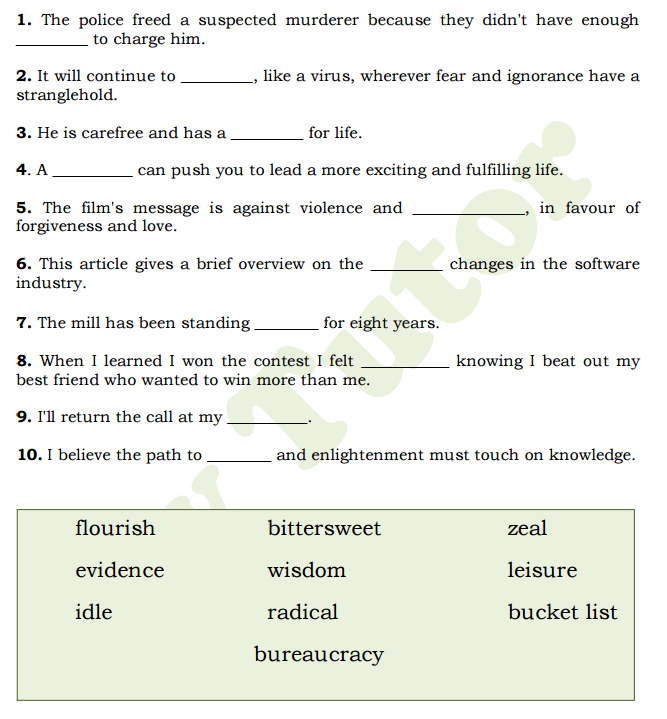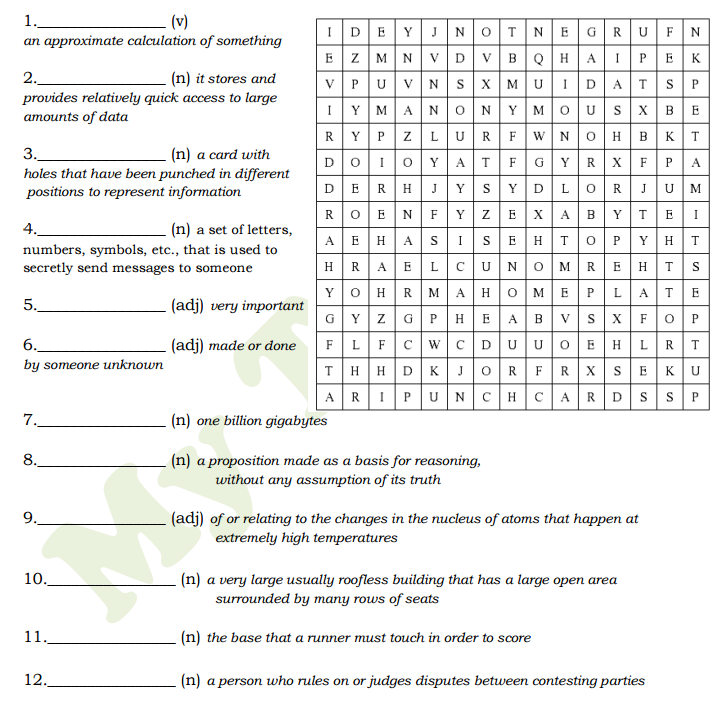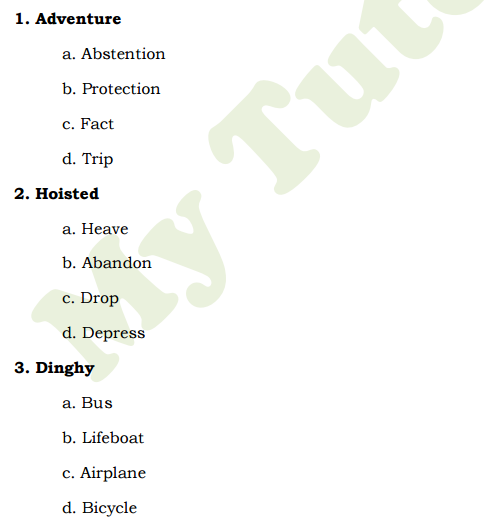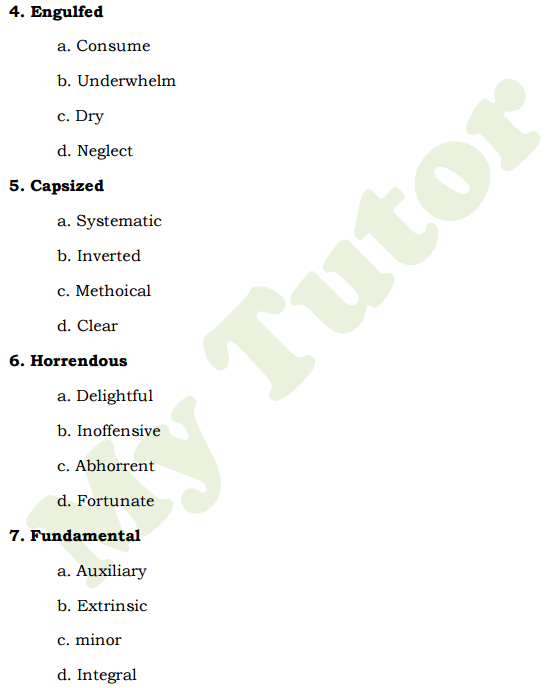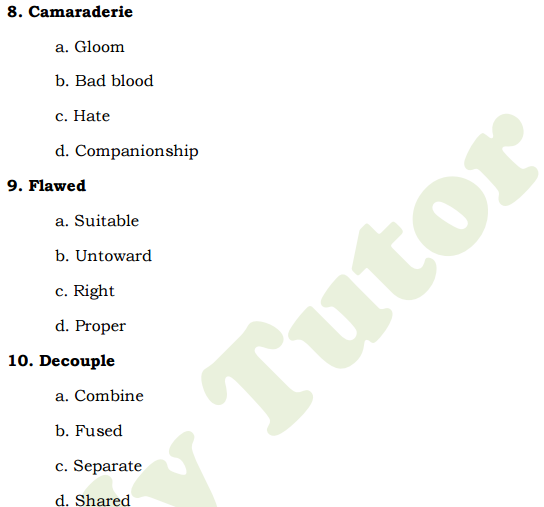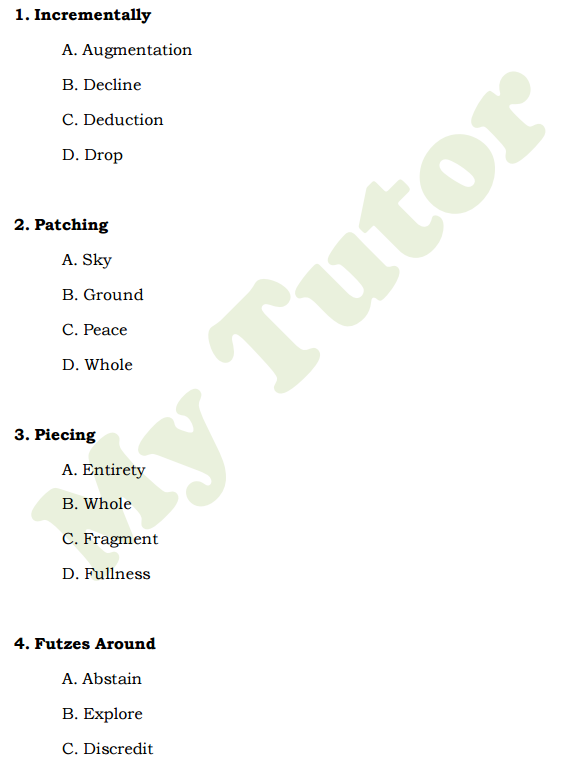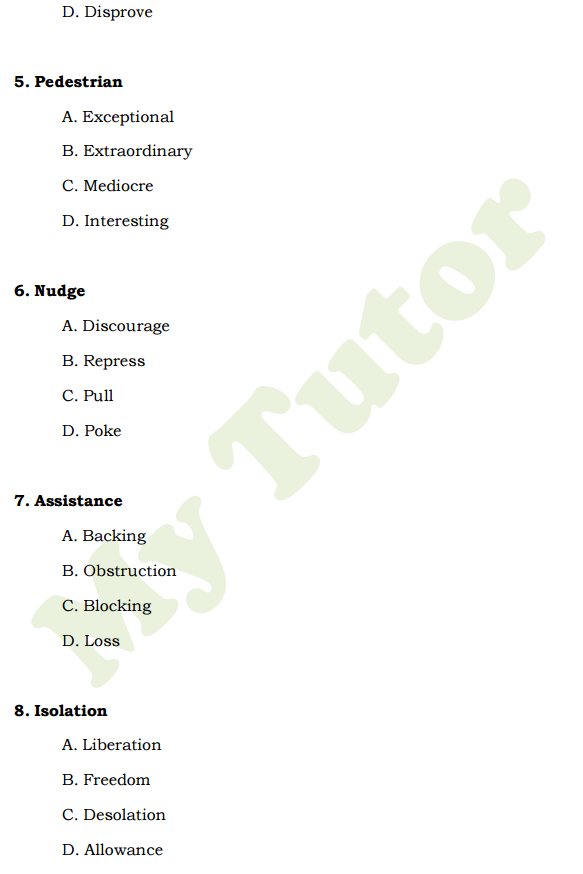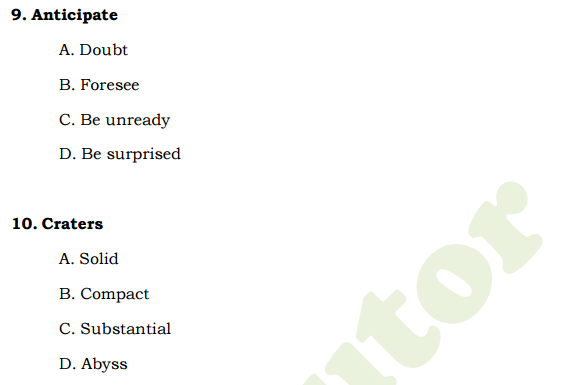IELTSライティング Task 1 Bar Chart(棒グラフ)攻略
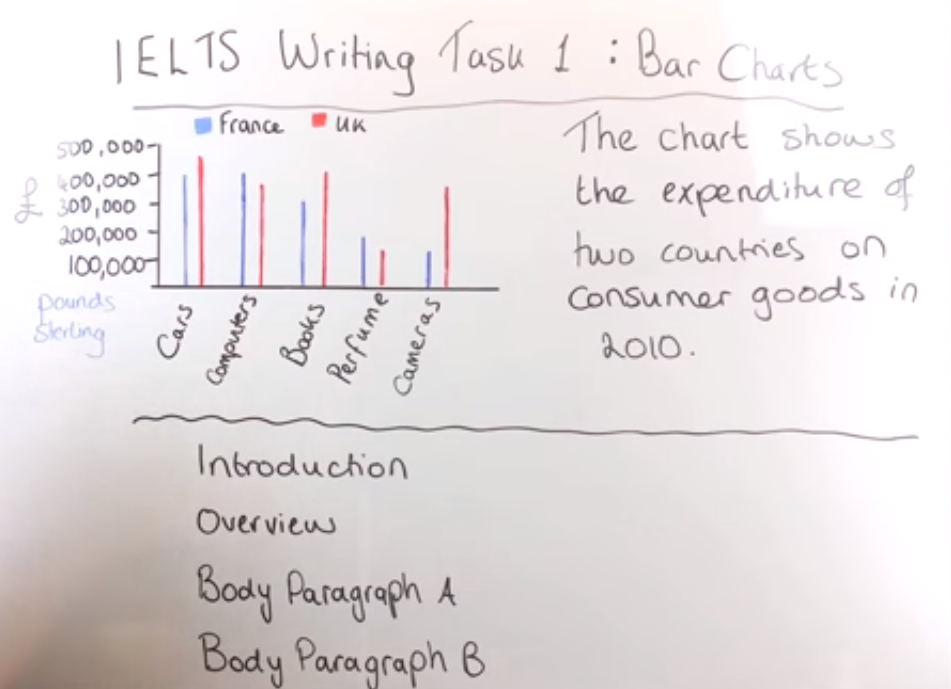
お勧めしたい4段落構成
- Introduction (序論)
- Overview (大要)
- Body Paragraph A (本論A)
- Body Paragraph B (本論B)

1 INTRODUCTION Paragraph 序論
表現の言い換え Paraphrase the information given by IELTS
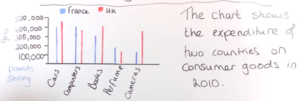

第一段落では、序論として「そのグラフが何を表しているか」を書きます。
それは設問文に示されていますが、設問文をそのままコピーするのではなく、
言い換えた文を書くことが大切です。
序論ではできれば2つの文を作るとよいでしょう。
グラフが何を表しているのかを簡単に説明していきます。
“ Units are measure in・・・・” のように書いていきます。
サンプル パラグラフ

重要ポイント!
同じ単語やフレーズの繰り返しを避けるために
「言い換え表現 synonyms」を覚えることが大切です。
また、次のようなアカデミックな表現を使いましょう。”The chart….consumer goods…
「 」はアカデミックな文章ではよく使われます。
グラフの日付に合わせた時制を使うことに注意します。
2 OVERVIEW Paragraph 大要
まずはグラフにある主な特徴を選びます。
それはグラフで表す数値が高いものや低いもの、或いは比較的大きな変化などです。
それらの特徴の概要を書いていきます。大要は評価の25%にあたる大切なところです。
サンプル パラグラフ

3つの主な特徴
全体的特徴(どちらの国がより消費しているか)
最も消費しているもの
最も消費していないもの
重要ポイント!
Task 1 の中で最も大切な部分
全体的な特徴(Overall)から書き出すこと
グラフの数値を比較しながら説明していく(Often use comparatives.)
英文を論理的に展開するために、さまざまな接続表現を覚える。(range of linking devices)
While / whereas / as opposed to / compared to / in comparison with.

3 BODY Paragraphs 本論
本論は2つ以上書きます。通常2つの本体を書きだします。
本論では、さらに細かくグラフの特徴を比較しながら説明します。
グラフの特徴を2つの側面に着目して、論理的に描写していきます。
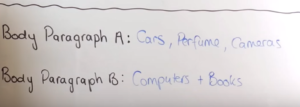
グラフの中で最も消費したものと消費が最低のものに着目する
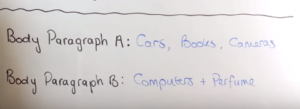
消費額に最も格差があるものに着目する
サンプル パラグラフ

Body paragraph(本論)では、数値を入れながら説明するようにしてください。
どんなに上手に書けても数値がない説明文は評価が上がりません。
それでは、最高得点(バンド スコア 9)の模範解答をご覧ください。

The chart illustrates the amount of money spent on five consumer goods (cars, computers,
books, perfume and cameras) in France and the UK in 2010. Units are measured in pounds sterling.
Overall, the UK spent more money on consumer goods than France in the period given.
Both the British and the French spent most of their money on cars whereas
the least amount of money was spent on perfume in the UK compared to cameras in France.
Furthermore, the most significant difference in expenditure between the two countries was on cameras.
In terms of cars, people in the UK spent about £450,000 on this as opposed to
the French who spent £400,000. Similarly, the British spent more money on books
than the French (around £400,000 and £300,000 respectively).
In the UK, expenditure on cameras (just over £350,000) was over double that
of France, which was only £150,000.
On the other hand, the amount spent on the remaining goods was
higher in France. Above £350,000 was spent by the French on computers
which was slightly more than the British who spent exactly £350,000.
Neither of the countries spent much on perfume which accounted for £200,000 of expenditure
in France but under £150,000 in the UK.






